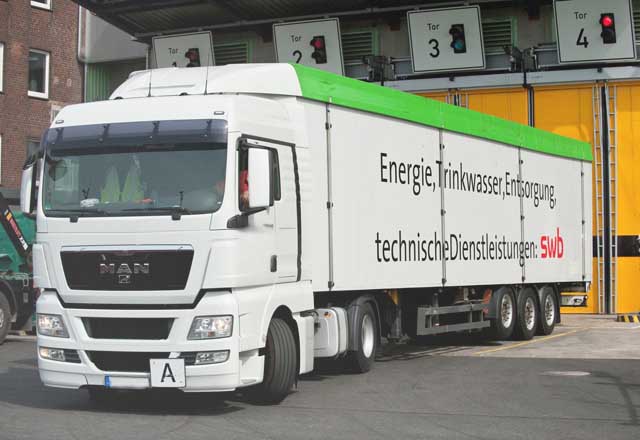
- for Refuse derived fuel (RDF)

With a dedicated quay for unloading seagoing vessels, as well as short distances to the A 27 motorway to other ferry terminals, swb Entsorgung has been operating the ‘Mittelkalorik-Kraftwerk’ MKK since 2009. At this energy-from-waste plant, we recycle the waste to generate energy – while complying with the R1 factor. Advanced equipment and grate firing, a tried-and-tested process over many years, guarantee high levels of availability and therefore reliable waste disposal. The MKK has annual capacity of 300,000 Mg and generates 230,000 megawatt hours of electricity and 80,000 megawatt hours of district heating annually, primarily from waste-based fuels with middle to higher calorific values – or RDF (Refuse Derived Fuel) for short.
The ‘Müllheizkraftwerk Bremen’ MHKW is also one of Germany’s most efficient plants and is situated on the A 27 motorway. After investments running into double-digit millions, this energy-from-waste plant can now offer efficient and advanced RDF energy recovery. RDF is produced by treating household and/or industrial waste. By converting MHKW’s boilers 1 and 4 to higher steam parameters and by enhancing energy efficiency, the MHKW far exceeds the R1 criteria. At full capacity, vast sections of Bremen can be supplied with 270,000 megawatt hours of electricity and 200,000 megawatt hours of district heating.
Joint operation of both energy-from-waste plants guarantees that we can harness synergy extensively – in terms of personnel, maintenance, logistics and material flow management, or waste management. In addition to efficient incineration and energy recovery, swb Entsorgung also recycles residues fully and to a high quality. All ferrous and non-ferrous content is removed from the bottom ash. The treated slag, rendered inert, is used as a quality-controlled material in road building.
